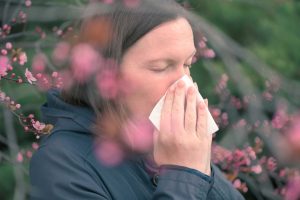For many Kiwis, influenza has long been the winter illness to watch out for. Flu season runs from May to October, and each year, thousands of New Zealanders fall ill. But since the 2020 COVID-19 pandemic, respiratory viruses come with another layer of risk, especially for those over 50. Is the flu worse than COVID?
Seasonal influenza is caused by a group of rapidly mutating viruses that spread easily through coughs, sneezes, and touch. For most healthy adults, the flu means a miserable week of fever, aches, cough and fatigue. Yet for those aged 50 and older, the risk of complications starts to rise. Pneumonia, bronchitis, and flare-ups of chronic conditions like asthma, diabetes, or heart disease are far more common.
Hospitalisation rates climb with age, and recovery times are often longer. The Ministry of Health recommends that everyone six months and older get the flu vaccine annually, but in practice, access varies. In Aotearoa, the vaccine is free for people aged 65 and over, for Māori and Pasifika aged 55+, and for those with long-term health conditions. Others, including many healthy people in their 50s, must pay privately, something that may discourage uptake.
In contrast, COVID-19 has consistently been more severe than the flu across all age groups, and the risks become pronounced from age 50. Even without underlying conditions, people in their 50s are significantly more likely to need hospital care compared with younger adults. International and local data show the odds of hospitalisation rise steeply from this age, and the risk of death is several times higher than for seasonal flu.
Unlike influenza, COVID-19 also carries a lingering shadow: long COVID. Symptoms such as chronic fatigue, breathlessness, and brain fog can persist for months after infection. People aged 50 and over are at greater risk of these long-term complications, which can affect quality of life and ability to work.
While both viruses can make you seriously unwell, the evidence is clear: COVID-19 carries heavier consequences in this age group.
Vaccination: the best defence
The government has recognised this threat. COVID-19 vaccines are free for everyone aged five and older, with boosters especially recommended for those aged 50 and older due to waning immunity
and higher risk. Vaccination reduces the likelihood of severe illness and helps curb the virus’s broader impact on health services.
Both illnesses are preventable through immunisation, and importantly, you can get the flu and COVID-19 vaccines at the same time. Health New Zealand encourages co-administration, with one injection in each arm. For over-50s, the benefit is clear: dual protection against two viruses that are increasingly co-circulating each winter.
Yet there is a gap in accessibility. While COVID-19 shots are universally free, flu vaccines are not. A 50-year-old without underlying health conditions or Māori/Pasifika heritage must usually pay between $25 and $45 at a GP or pharmacy. Public health experts argue that wider funding would boost uptake and reduce the annual burden of flu-related hospitalisations in this working-age population.
The Ministry of Health’s updated New Zealand Pandemic Plan, published in 2024, explicitly includes both influenza and coronaviruses. It stresses the need for ongoing vigilance: flu pandemics remain a future threat, and COVID-19 continues to circulate in unpredictable waves. For those aged 50 and older, the takeaway is not to treat these illnesses as interchangeable, but to recognise the distinct risks each carries.
So, which is worse for New Zealanders over 50? Influenza is far from harmless, but COVID-19 is the greater threat, more likely to cause hospitalisation, death, and long-term health issues. The best defence is vaccination against both. For anyone approaching or past 50, the message is simple: don’t leave it to chance. A jab in each arm could mean the difference between a short recovery at home and a long stay in hospital.





